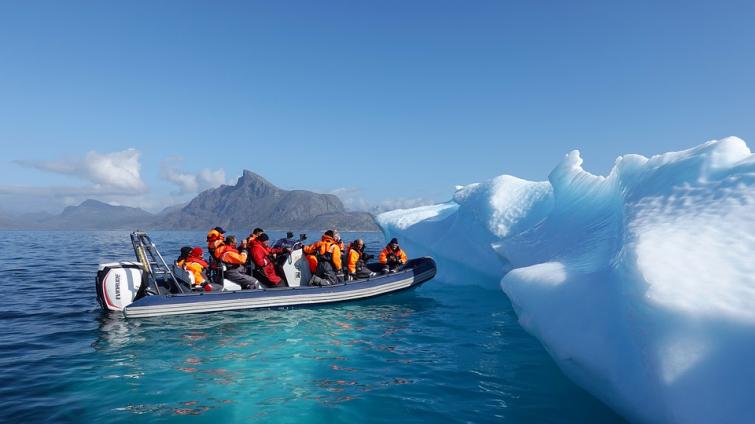
WEF: New public-opinion poll calls for better climate education and urgent upskilling
Geneva, Switzerland/IBNS: A global survey of public opinion published today by the World Economic Forum finds that the world overwhelmingly blames global warming on human activity, with some regions slightly less trusting of climate science in 2020.
The survey also finds a majority of people in the world believe schools are under-preparing students for jobs. Outside of the Americas and South Asia, education is still viewed as a privilege for half of the population or less.
The study reinforces and will help drive home the World Economic Forum’s 50th Annual Meeting’s message that the world urgently needs to start implementing policies and strategies that advance societal and environmental agendas – from reskilling the population for the future to ensuring strong education and leadership on climate change from all sectors.
The global public-opinion poll, prepared in collaboration with SAP and Qualtrics, surveyed more than 10,500 people in 30 countries – around 76% of the global population. The findings have been presented in two parts – Toward a More Sustainable World and Toward a More Cohesive World.
Toward a More Sustainable World found that while more than half of respondents reportedly trust climate science, those in India are the most trusting. 86% said they trusted scientists “a great deal” or “a lot”, followed by Bangladesh (78%) and Pakistan (70%). China and Turkey (both 69%) complete the top five.
By region, almost a fifth of North American adults expressed “little” (12%) or “no” (6%) trust in climate science, compared to South Asia, expressing “little” trust (4%), and “no” trust (2%).
Respondents were also asked whether they believed global warming exists and what causes it. Overall, more than two-thirds of people agreed that it’s caused mostly by human activity – In Latin America and the Caribbean (78%) agreed.
“We look forward to the Annual Meeting 2020 being a breakthrough moment for climate change. Our participants making a commitment to help tackle this urgent issue is in line with the stakeholder imperative of the 2020 Davos Manifesto and the theme of the 50th World Economic Forum Annual Meeting: Stakeholders for a Cohesive and Sustainable World.” said Klaus Schwab, Founder and Executive Chairman of the World Economic Forum.
Toward a More Cohesive World found that outside of the Americas and South Asia, majorities believe that a “good education” is the privilege of half of the population or less.
Respondents also believe local schools are underperforming in terms of training students for the future workforce.
A key focus for the World Economic Forum’s 50th Annual Meeting this week will be driving change to reskill and upskill the global population for future jobs. Forum research has found education systems have "become increasingly disconnected from the realities and needs of global economies and societies”, with a need to adapt to provide future generations with the right skills.
“Only together can government, business, the scientific community, and NGOs solve the world’s most pressing challenges – and only if they put a relentless focus on what to achieve and how to achieve it,” said SAP co-chief executive officers, Jennifer Morgan and Christian Klein. “It’s the people of this world who can help bring this focus to the areas of greatest urgency. Giving them a voice and acting on their feedback is an important duty of every leader from every corner of the globe."
A specific platform focused on upskilling and reskilling will be launched at this week’s Annual Meeting. The initiative will create a more cohesive world by providing 1 billion people with new, more relevant skills for accessing decent jobs within the next 10 years.
Support Our Journalism
We cannot do without you.. your contribution supports unbiased journalism
IBNS is not driven by any ism- not wokeism, not racism, not skewed secularism, not hyper right-wing or left liberal ideals, nor by any hardline religious beliefs or hyper nationalism. We want to serve you good old objective news, as they are. We do not judge or preach. We let people decide for themselves. We only try to present factual and well-sourced news.







